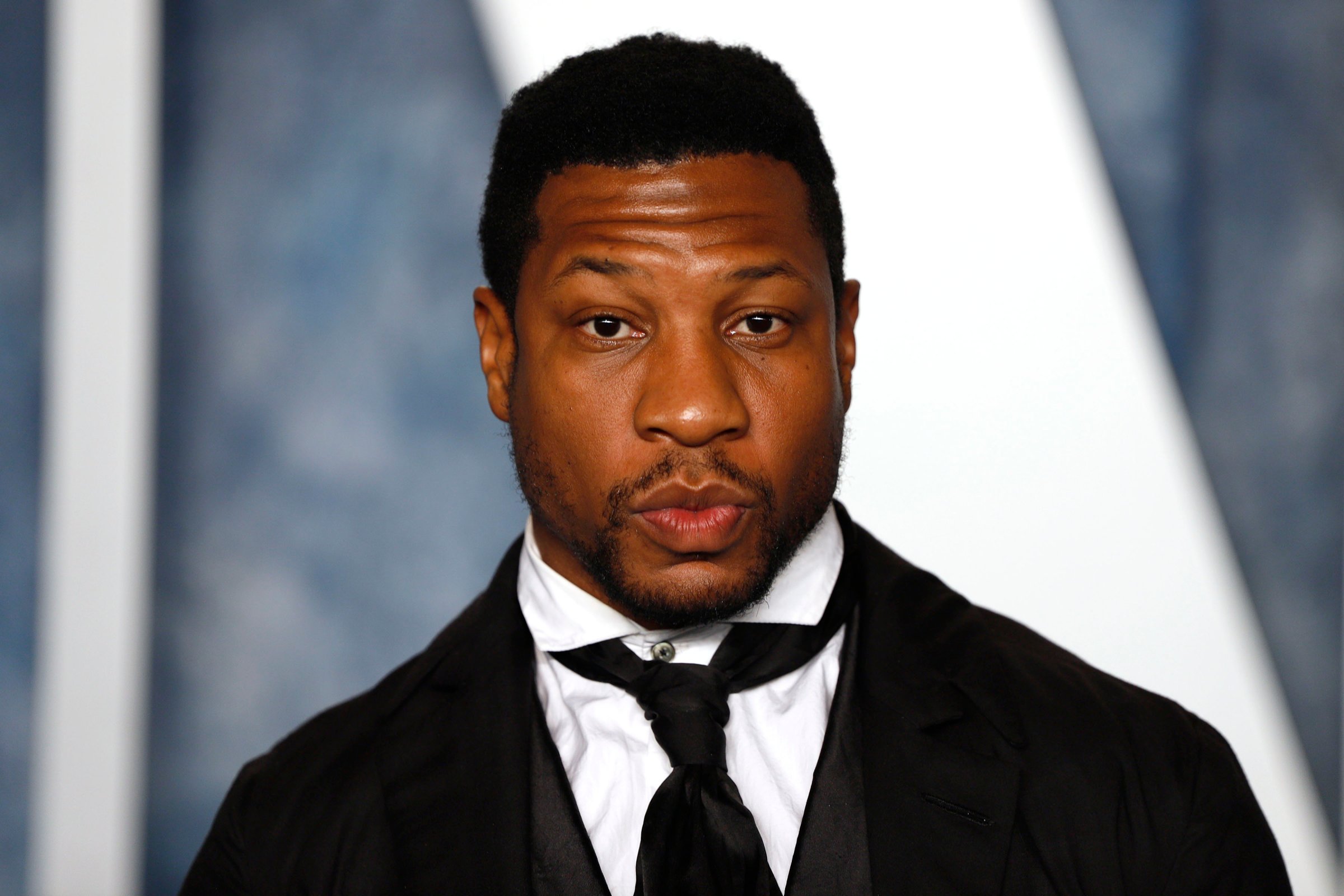
The trial for Jonathan Majors' domestic violence case was set to begin on Aug. 3, with the 33-year-old actor facing up to a year in jail if he is convicted on misdemeanor charges of assault and harassment. However, after Majors arrived at court, his attorney filed a motion to delay the trial, arguing that prosecutors weren’t “timely” in handing over new evidence.
A new trial date has been set for Sept. 6.
Majors was initially arrested in March and charged with misdemeanor assault, aggravated harassment, attempted assault, harassment, and strangulation following an alleged domestic dispute with his then-girlfriend, Grace Jabbari. The strangulation charge was later dropped, and Majors has pleaded not guilty to the other four charges.
Majors' star was on the rise ahead of his arrest, with breakout turns in the HBO series Lovecraft Country, Marvel's Loki TV show and Ant-Man and the Wasp: Quantumania movie, and the Michael B. Jordan-directed blockbuster Creed III swiftly turning him into a household name.
More From TIME
In the wake of the charges, Majors’ management company, Entertainment 360, and PR firm, The Lede Company, both dropped the actor as a client, according to Deadline. In April, Variety reported that additional people had come forward alleging abuse by Majors and were cooperating with the Manhattan district attorney’s office.
“Jonathan Majors is innocent and has not abused anyone," said his attorney Priya Chaudhry in a statement released in April. "We have provided irrefutable evidence to the District Attorney that the charges are false. We are confident that he will be fully exonerated.”
In June, Rolling Stone published a lengthy story citing over two dozen sources who claimed that Majors has a history of abusive behavior in both his personal and professional life, dating back a decade to his time at Yale’s David Geffen School of Drama. “It was pervasively known that he was [a good actor], and that he also would terrorize the people that he had dated,” one unnamed source told the magazine.
Dustin Pusch, another of Majors' attorneys, "vehemently" denied all allegations put forward in Rolling Stone's report in a statement to the publication, specifically denouncing claims that Majors had abused two women he dated—one physically, and both emotionally.
“These allegations are based entirely on hearsay because neither of the romantic partners referenced were willing to engage with Rolling Stone for the article—demonstrating their outright falsity," Pusch said.
Here's what to know about Jonathan Majors' forthcoming trial.
What is Jonathan Majors on trial for?
Majors was arrested on March 25 in New York City when police responded to a 911 call in the Chelsea neighborhood of Manhattan. At the time, a New York City Police Department (NYPD) spokesperson said in a statement that a 30-year-old woman, the then-unnamed Jabbari, had “sustained minor injuries to her head and neck and was removed to an area hospital in stable condition.”
In May, prosecutors filed an updated account of the incident in which Jabbari alleged that Majors violently grabbed her finger, twisted her arm behind her back, and struck her on the face with an open hand, cutting her ear. She also claimed that Majors pushed her into a car, causing her to fall backward. Jabbari was granted a full temporary order of protection against Majors in April that remains in place.
How has Majors' legal team responded?
Majors' attorneys have gone on the offensive in response to the charges, claiming that Jabbari's accusations are false and that it was she who assaulted Majors during the altercation rather than the other way around.
On June 21, Majors filed his own domestic violence complaint in which he alleged that a "drunk and hysterical" Jabbari scratched, slapped, and grabbed at his face, causing pain and bleeding, according to Insider. Majors' team has also suggested that "racial bias" has played a role in the district attorney's investigation and that Majors is the victim of a "witch hunt."
In late June, the NYPD reportedly issued and then canceled an "incident card," or "I-card"—an electronic document that notifies officers that a particular person is "wanted" by police, at least for questioning—for Jabbari. A lawyer for Jabbari told the New York Times that she had done nothing to warrant arrest and that "Out of respect for the criminal process and the prosecuting attorneys who will make decisions based on the evidence, we do not intend to respond to rumors.” A police spokesman told the newspaper only that the investigation into the incident was continuing and that no additional arrests had been made.
Majors appeared briefly in person in New York criminal court on June 20 for a hearing where Judge Rachel S. Pauley set his trial date for Aug. 3.
More Must-Reads From TIME
- The 100 Most Influential People of 2024
- How Far Trump Would Go
- Scenes From Pro-Palestinian Encampments Across U.S. Universities
- Saving Seconds Is Better Than Hours
- Why Your Breakfast Should Start with a Vegetable
- 6 Compliments That Land Every Time
- Welcome to the Golden Age of Ryan Gosling
- Want Weekly Recs on What to Watch, Read, and More? Sign Up for Worth Your Time
Write to Megan McCluskey at megan.mccluskey@time.com